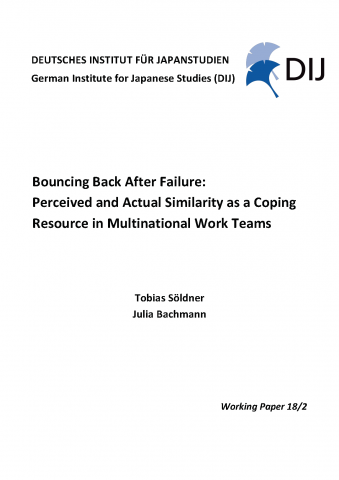Bouncing Back After Failure: Perceived and Actual Similarity as a Coping Resource in Multinational Work Teams

Multinational work environments challenge the coping capabilities of employees with additional culture-related stressors above and beyond those usually found at the workplace. This paper examines the differential effects of perceived team leader / member similarity, their actual national similarity, and the mutual overlap in personal values on the coping potential of team members in a multinational work team setting, with a special focus on the Japanese context. An analysis of the data provided by 365 dyads of multinational team leaders and members in mixed Japanese/non-Japanese work teams revealed that the coping abilities of team members who shared the leader’s country of origin (surface level national similarity) were not significantly higher than those of team members who came from a different country. Conversely, the actual overlap in personal values endorsed by a team’s leader and each individual team member emerged as a robust predictor for that team member’s coping potential, both directly and indirectly through generalized similarity perceptions. This highlights that in order to understand why some multinational work teams work out in the long run and others do not, an overly strong focus on surface characteristics of their composition (e.g., national or ethnic diversity) may not be an optimal approach. In many cases, the actual determinants may be the perceived and experienced match or mismatch between the deep-level psychological characteristics (e.g., shared personal values) of team members and their leaders.
Keywords: Coping, resilience, multinational teams, leader-member similarity, values.
For the full paper please contact soeldner@dijtokyo.org